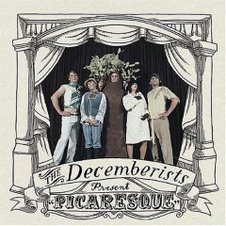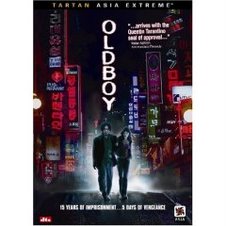I have known Square Peg for several years, in the way you know people you've only met on the internet. He's a wonderful writer, and I'm glad he's allowed me to post his story on Viva Ned Flanders.
At the beginning of the year over on LDS Liberation Front, RoastedTomatoes ran a series called "What's Next?" The series told the stories of people who had undergone a change in faith, and discussed where their journeys could or did take them. (Full Disclosure: I was a major instigator of this series.) Not all the stories that were written were posted. This one was one of my very favorites. You snooze, you lose, RT! :)
My So-Called Heretical Life
An episode of the public radio program This American Life featured the story of Carlton Pearson, an Evangelical pastor in Tulsa, Oklahoma who—until sometime in early 2003—was widely regarded as “a rising evangelical megastar.” Reverend Pearson had it all: a thriving congregation in Tulsa with more than 5,000 members, close personal ties with leading members of the Evangelical elite, a seat on the Oral Roberts University Board of Regents, financial security, respect, honor.
Less than a year later, Reverend Pearson’s congregation had shrunk from 5,000 to 250. He had been denounced and rejected by virtually every leader in the evangelical movement, including Oral Roberts, the man who often used to refer to Pearson as his adopted son. He stood on the brink of bankruptcy and financial ruin. He had been rejected by many of his closest, most intimate friends. In what must have seemed like the blink of an eye, Carlton Pearson had gone from a celebrated leader to a complete pariah in the eyes of the only religious community he had ever known.
So how could this sad tale of a fallen Bible Belt preacher have anything to do with my own spiritual journey as a 5th-generation Idaho Mormon? The answer starts with the reason for Pearson’s dramatic downfall. There was no salacious sex scandal or financial misdeed. Nope. Carlson Pearson’s whole world came crashing down around him simply because, after a period of intense reflection and prayer, he stopped believing in the traditional Christian version of Hell—and started preaching that Christ’s atonement is sufficient to redeem “all of creation, including all human beings.” Because he refused to keep quiet about these (from an evangelical perspective) shocking beliefs, Pearson was branded a heretic and unequivocally rejected by the community he had dedicated his whole life to.
On the surface, I have very little in common with Reverend Pearson. I have spent most of my life as a quietly devout, believing member of the LDS church. I’m not particularly charismatic. I probably couldn’t give you a respectable AMEN! or PRAISE GOD! if you paid me. And I’ve certainly never aspired to any kind of leadership position—either inside or outside the LDS church. Until recently, I was one of the quiet, unassuming masses who simply tried his best to keep most of the boxes on the official “Worthy Mormon Male” checklist dutifully checked.
But despite our differences, Carlton Pearson’s story profoundly moved me for reasons that transcend our backgrounds and experiences. First, I too am a heretic—in my own quiet, low-key way. A couple of years ago, after an intense period of study and reflection, a gradual accumulation of vague doubts flowered into full-blown disbelief. I won’t bore you with the details—the circumstances and experiences that have led to my disbelief are as personal and unique as my own fingerprints. It’s enough to say that I no longer believe most of the foundational claims of the LDS church, and although anything is possible, I think it’s highly unlikely that I ever will.
But despite my heretical beliefs, I still feel deeply connected to the only religious community I have ever known. My wife, children, and extended family on both sides are all devout, active members, and I live in the heart of Utah County, where so many aspects of daily life are inexorably intertwined with the LDS church. I long to feel comfortable and accepted in the church as I once did—despite my unorthodox beliefs.
I have spoken with or read about many who remain active, faithful members on their own terms—often in spite of doubts and unorthodox views. These stories offer me hope that perhaps there is a place for me in the church—a place that will allow me to be true to myself and doesn’t force me to choose between my beliefs and my religious community.
But then I hear stories like Carlton Pearson’s (or Grant Palmer’s or Michael Quinn’s or Lavina Fielding Anderson’s) that remind me how much conservative religious communities fear and distrust heretics, and I realize that unless my beliefs somehow change, I will never again be completely accepted by (or acceptable to) the LDS community. In practical terms, this means I will probably never hold a temple recommend. I will never be able to participate in most cherished LDS rituals. In my very conservative ward, I will be gossiped about, strategized over, and fellowshipped. I will most likely not even be able to participate in my own children’s weddings, which frankly, seems inconceivable to me.
Of course, the costs of my private, low-key heresy are trivial compared to what Carlton Pearson and many others have been forced to pay. But they still feel pretty damned steep to me. So from my perspective, the answer to “What’s Next” boils down to two possibilities: I can continue to participate in the LDS community as a quiet heretic—and simply live with the fact that I will always be partially unaccepted and unacceptable. Or, like Carlton Pearson, rather than quietly going along to get along, I could choose to leave my religious heritage and begin the painful process of finding or building a new community that is more compatible with and accepting of my beliefs. The first option seems easier and more convenient—but also possibly less fulfilling over the long term. The second option feels more difficult and much more painful—but possibly more rewarding, honest, and meaningful.
Right now, I’m straddling the fence, considering both options but choosing neither. Someday, probably soon, I will make my choice, and I can honestly I don’t know which road I will choose. In retrospect, Carlton Pearson says that if he’d known, when he first started preaching his gospel of inclusion, that it would cost him so much, he would never have opened his mouth. But he also says that God doesn’t show you everything at once for a reason. And now that what’s done is done, there’s no way he’d go back. After I complete my journey, whatever I decide and whatever the outcome, I only hope I can say the same.
Monday, May 08, 2006
Subscribe to:
Post Comments (Atom)




18 comments:
Very insightful. I hope that whatever journey you take it will be right for you. BTW, I listened to your podcast and thoroughly enjoyed it.
I never thought I would consider myself a heretic either.
Thank you for sharing your struggle. I am including a link to a discussion I had with an online community about whether I should stay in the LDS community for a little while longer, or go ahead and get out as soon as I found that I could no longer believe. Perhaps some of their comments might be helpful.
http://tinyurl.com/hnmsw
Thanks for the link, Enochville. It was interesting (and helpful) to read all of the different perspectives and opinions from people with different religious backgrounds.
For me, the whole "should I stay (sort of) or should I go" dilemna is incredibly complex. As I've read about the experiences of people in a similar situation on various online forums, the whole "integrity" issue seems to come up over and over again.
For some people, a sense of personal integrity compels them to leave the church immediately and completely after they stop believing--regardless of the costs to themselves or their families. For others, personal integrity means staying involved in the church, even if that means living an extremely difficult double life, to preserve family relationships.
Who's right? Who has more personal integrity? I don't know. Maybe the answer is different for every person and every situation.
I do think that anyone who insists that the only honorable thing to do after you lose your belief in the church is resign your callings, stop participating in all ordinances, and leave the church immediately and completely are, well, wrong.
I found Randy's comment on my post about believing again to be very insightful. I don't understand much about the idea of attachment, except that the more I am willing to let go of my needs - the need to belong, the need to be understood, the need to be valued for what I am, rather than devalued for what I am not - the more I am able to get something out of my experience in church.
Even the bad experiences can bring about wonderful, humbling insights. I'll be blogging about one of those in the next day or two.
I think the key to getting along as an active bench-sitter with non-congruent beliefs is being open to whatever happens to come along, and trusting your own instincts.
You have good instincts, Square Peg. Whatever you decide, you'll be fine.
"The honest seeker of truth has nothing to fear."
--William James (I think).
"let go of my needs - the need to belong, the need to be understood, the need to be valued for what I am, rather than devalued for what I am not"
Ann, are these needs that should be let go of? I can understand that church doesn't fulfill all (or perhaps any) of them right now, but it can still be worth going to church for other reasons. But it seems like women who spend all day caring for others' needs, and who are inclined toward depression, need to be very conscious about fulfilling those needs *somehow,* rather than allowing their needs to be more fully ignored and themselves to be further erased.
On my mission, we had a young single Japanese woman as an investigator.
During a lesson, the conversation turned to more general topics, like future plans, etc.
She asked me if I would ever consider living in Japan. I said no. I didn't kid myself that I would be anything more than an exotic gaijin (foreigner). I was pretty sure I would never REALLY be accepted into Japan's homogenous society and I said so.
She looked at me thoughtfully and then said "well, if that's how you see it, that will become your reality."
Suddenly, my conclusions about Japan really didn't seem to so clear-cut anymore.
Seth R.
Beijing, it's about letting go of expectations, not suppressing the needs.
It's likely, though, that if I remain open to whatever may come, something good may come. It may not, but if it does, I'm glad, and if it doesn't, I'm not disappointed.
Seth,
Interesting analogy, but I think there's one crucial difference between feeling accepted in the church and feeling accepted in a foreign country.
You simply can't be a fully-active, fully-participating member of the church unless you hold a temple recommend. And you can't hold a temple recommend unless you believe (or at least pretend to believe) the core foundational claims of the church.
I can be 100% orthopraxic, but unless I believe certain things, I'll never be in "full fellowship." That's just how it is. A positive attitude can certainly affect and improve my experience as a participating non-believer, but it can never overcome that barrier. Only belief can do that, and that's the one thing I lack.
Square, I don't know about that. A temple recommend is pretty much a requirement for a guy for a position of influence, but there are really very few things that call for a temple recommend.
The only real place the lack of a TR impacts plain old Mormons is for weddings. And I am a firm believer in making lemonade from that particular lemon. Our children know our hearts, and we know theirs, and we will be there in their hearts, and they in ours, when they are married, whether we are physically present or not.
Thanks for sharing your story, Square Peg. Bursting the Mormon Bubble is tough, not only socially but we also need to rebuild our understanding of the world. All the best to you!
I guess I don't understand the desire to be a part of something that you profess to have lost faith in.
Is the pull to be in "full fellowship" just a desire for the social aspects of your church relationships, or is it something more?
Being a Latter Day Saint is exactly that: being. It is much more than pot lucks and boy scout camp. It is more than the things you do, it is who you are.
A Latter Day Saint's wedding in the temple is more than just the "I do" of a civil union. The tenets of LDS faith mean that saying "yes" over that altar has eternal consequences.
It appears to me that the reason for your angst has nothing to do with a loss of faith. Perhaps that is why it was lost in the first place.
MVM,
Hey, I'm a Magic Valley Mormon, too (born and raised in Twin Falls).
Anyway, you're exactly right. Being a Latter-day Saint is without question more about who you are more than what you do, especially if you were born and raised in the church. The church has informed and influenced virtually every aspect of my life. Mormonism is an unerasable part of my identity and my heritage. That's never going to change--regardless of what I believe.
Hopefully that helps explain why I would still want to be part of something I have lost my faith in.
Also, please be careful about questioning the reasons or motives for my disbelief--you simply don't know enough about me or my circumstances to do that. I would never presume to second guess or question your beliefs, and I would ask that you extend the same courtesy to me and others like me.
In reality, the reason for my angst has everything to do with my loss of faith, and not the other way around.
I do not know much about LDS, but I just heard about Pastor Pearson's story on BET and wanted to know more about him and found your blog... I believe that God talks to all of us individually and we forget and serve our religion and not serve God - so I think that you and all of us should look for an individual relationship with God and hear what he have to say about us... and work with it - but it seems that if you listen to God and not to man you would be looked at as a heretic....
to continue on the pastor Pearson situation, was'nt the same thing that happen to Jesus - wasn't he the one who stretched the jewish religion and was also looked at as a heretic.... I do not believe that one human bein have the truth about God, it is all of our responsibility to search it out for ourselves, so if you are having doubt - you should be speaking to God and find out how you must feel..the doubt that you are feeling is the beginning of a personal relationship with God, you may think of it as doubt but it may be guilt, guilt that you are looking at the inside of you for the answers instead of you human leaders - but as is said "greater is he who is in you than he who is in the world"
Really interesting discussions here. Thanks for the ideas and opinions. May I suggest that you read Tom Harpur's book, Water into Wine? He's a former Anglican minister with great insight into both the Old and New Testament. Instead of taking everything so literally, he explains the Bible with such incredible insight, relevant to today's world, leaving behind the prejudices we've been taught by established religions. Do yourselves a great favour and read it.
Rob
Thank you, Deliza and Rob for your comments. I love that google still brings people to old posts like this one. I will have to check out that book, Rob.
Post a Comment